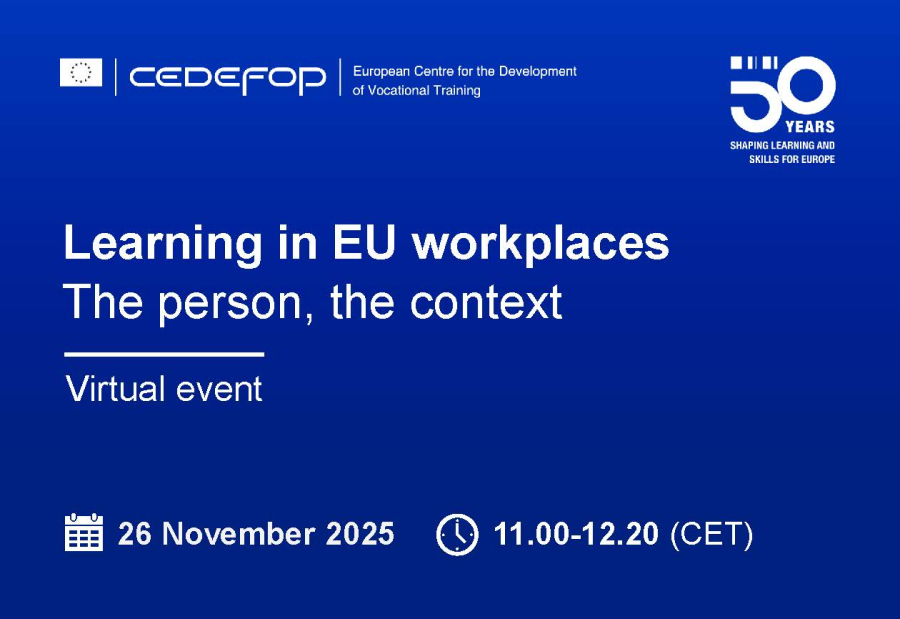The passage to Industry 5.0, towards a sustainable, human-centric and resilient European industry, envisions a future where human wellbeing and societal values are at the heart of production. When workers have more latitude and decision-making responsibility at work, it is in the organisation’s interests that they are equipped with the skills to do their job, and the expertise needed to use their autonomy effectively.
Cedefop’s European Training and Learning Survey (ETLS) investigates learning as the development of expertise among European workers. Since workplace features can hinder or support expertise development, the ETLS uses a framework in which workplace features – as experienced by workers – can influence learning at work. The policy it addresses the sustainability of human activities with respect to available resources (greening), and acknowledges technological progress. However, this technological progress is not intended to replace people but to empower them. In the workplace, technologies are adopted to make employees more productive. Workers are given more influence and greater responsibility in shaping the production process through the adoption of digital technologies and advanced machinery.
However, responsibility and autonomy should be accompanied by sound judgement. It is essential that workers have the knowledge and the skills to perform their tasks. When workers are given autonomy and responsibility, it is also crucial that they understand the context in which they make autonomous choices, are aware of the trade-offs involved, and keep in mind the needs, values, and goals of the organisations. In this way, workers can both perform their tasks correctly and make decisions that align with the organisation's interests, so that they can not only do things right but also do the right things.
The ability to understand the context and the tacit features of a problem is often referred to as expertise or practical wisdom (phronesis, the moral aspect of expertise, and praxis, the practical ability to apply experience). If workers are given more latitude and decision-making responsibility at work, it is in the organisation’s interests that they make good use of their autonomy.
Cedefop’s European Training and Learning Survey (ETLS) aims to address these themes. Expertise must be developed, and learning denotes increments in experience. The ETLS is designed to investigate learning – the development of expertise – among European workers. Workers operate in an organisational context, which varies across workplaces. These differences in context influence the behaviour of workers and managers, and determine the resources available for working and learning, and ultimately, whether work environments promote of hinder learning. The ETLS is an employee survey, so it collects individual characteristics that may encourage or discourage workers from learning. Given the importance of the workplace context, the ETLS pays special attention to collecting information about workplace features as experienced by workers.
Cedefop carried out an initial but comprehensive data analysis. This webinar will briefly introduce the results of the analysis and provide a platform to discuss and share views on relevant issues with key stakeholders and experts in the field.
Audience
This webinar contents are relevant for policymakers and social partners, researchers, and the general public.
Programme
Times are indicated in CET.
| 11.00 - 11.05 | Introduction |
| 11.05 - 11.35 | Learning in enterprises, messages from the ETLS |
| 11.35 - 12.05 | Panel discussion |
| 12.05 - 12.15 | Q & A |
| 12.15 - 12.20 | Final remarks |

